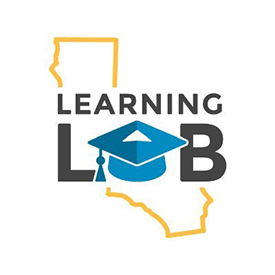University calculus courses can often negatively and inequitably affect student success in STEM, as these challenging yet foundational classes can act as a barrier to achievement for students from communities historically underrepresented in these fields. A seed grant from the state-funded California Learning Lab will be used to help address this equity gap in calculus courses and increase retention for engineering students at UC Santa Cruz.
Teaching professors Frank Bäuerle and Pedro Morales-Almazan (Department of Mathematics, division of Physical and Biological Sciences), will collaborate with Associate Professor Marcella Gomez (Department of Applied Mathematics, Baskin School of Engineering) to add context for engineering applications of calculus into the curriculum of Math 19A (Calculus for Science, Engineering, and Mathematics), a course required for engineering, math, and physics students typically taken in a student’s first year.
They will incorporate related elements of active learning into discussion sections through an equal partnership with Academic Excellence (ACE) program’s director Susanna Honig and Center for Innovations in Teaching and Learning (CITL) director Jody Greene, who have deep expertise in evidence-based pedagogy.
“As instructors, our goal should be to level the playing field and ensure that all students have equal access to progress and continue on to a major of their choice,” Gomez said. “[These changes will] establish that expectation that we’re fully confident that they are continuing in the STEM major and as such we're preparing them.”
The faculty hope to make the calculus class better facilitate learning preparation for engineering courses by mapping what they're learning in lecture to content that might appear in later classes. Additionally, they will work with ACE staff to create materials and projects that encourage active learning and figure out which techniques will best support student success. ACE learning skills advisors, who have experience with the pedagogy, content, and faculty of these classes, will work with graduate student teaching assistants to augment the instruction provided in discussion sections.
“Providing opportunities to engage and using tools that we know can have a positive impact makes a lot of sense,” Bäuerle said. “There's science behind it, there's pedagogy behind it that makes it clear that this is a proven strategy.”
By increasing skills and confidence in these calculus courses, Gomez says that students can build their own scientific identity and develop a sense of belonging in the engineering disciplines, which is essential for long-term success.
“[We want] them to feel like they're not just a daughter or a sister, but they’re also a scientist, they're also an engineer,” Gomez said.
The California Learning Lab, which provided the $100,000 grant, is funding an initiative to address the calculus equity gap in the state's UCs, state universities, and community colleges. The materials created by researchers at UCSC will be open source for other educators to learn from for their own classes.
This is one of several efforts on campus to rethink math courses with student success in mind. Bäuerle hopes that this project can assist in the process of ensuring that calculus courses offered at UCSC are suiting the needs of engineering students as well as students across the campus for which calculus plays a foundational role in their fields.
“This project is exciting because it's combining proven strategies to help support student learning and establish collaboration with faculty from engineering,” Bäuerle said. “We hope we can use this project as a model for adding contextualized examples for engineering and other subjects as well as ACE-integration to other courses.”



